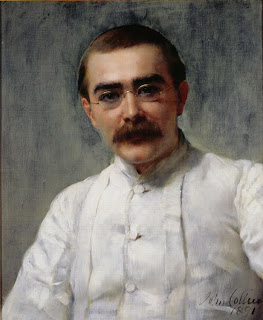Now here's the fun part. Can you match these fourteen Nobel laureates with extracts from their citations (below, with one red herring). Scroll down for the answers. No Googling.
1."that epicist of the female experience, who with scepticism, fire and visionary power has subjected a divided civilisation to scrutiny".
2. "who in his plays uncovers the precipice under everyday prattle and forces entry into oppression's closed rooms"
3. "for having united perceptive narrative and incorruptible scrutiny in works that compel us to see the presence of suppressed histories"
4. "for works of lyrical beauty and ethical depth, which exalt everyday miracles and the living past"
5. "for his novels which, with the perspicuity of realistic narrative art and the diversity and universality of myth, illuminate the human condition in the world of today"
6. "for an epic and psychological narrative art which has introduced a new continent into literature"
7. "for his writing, which - in new forms for the novel and drama - in the destitution of modern man acquires its elevation"
8. "for his mastery of historical and biographical description as well as for brilliant oratory in defending exalted human values"
9. "in recognition of his varied and significant writings in which he champions humanitarian ideals and freedom of thought"
10. "for his outstanding, pioneer contribution to present-day poetry"
11. "for his distinguished art of narration which takes its highest form in The Forsyte Saga" [and there's a clue in this citation]
12. "in consideration of the power of observation, originality of imagination, virility of ideas and remarkable talent for narration which characterize the creations of this world-famous author"
13. "for his work which is marked by both idealism and humanity, its stimulating satire often being infused with a singular poetic beauty"
14. "for his always inspired poetry, which in a highly artistic form gives expression to the spirit of a whole nation"
15. "who in novels characterized by visionary force and poetic import, gives life to an essential aspect of American reality".
The answers are:
1. Doris Lessing
2. Harold Pinter
3. V. S. Naipaul
4. Seamus Heaney
5. William Golding
6. Patrick White
7. Samuel Beckett
8. Winston Churchill
9. Bertrand Russell
10. T. S. Eliot
11. John Galsworthy
12. Rudyard Kipling
13. George Bernard Shaw
14. W. B. Yeats
15. Toni Morrison
A final refelection on Nobel Prizes. Taking all categories into account, the top nation (with 338 laureates) is the United States. Britain comes second, with 119; Germany third with 103 and France fourth, with 53. After that it's mostly single figures. How these numbers relate to population size is the subject of this strangely absorbing chart. Good to see the Faroe Islands at the top for once.

No comments:
Post a Comment